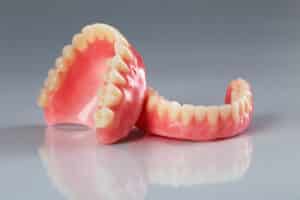Being a family caregiver for an elderly adult who is living with cognitive functioning decline carries with it challenges more extensive and different than those of caring for a senior without this difficulty. One is that they are no longer able to handle their personal care needs, such as maintaining their dental health. This can lead to challenges for their health, such as difficulties with their oral health, infections, tooth decay, or tooth loss. It is important for you to take steps to help your parent maintain their health through effective personal care.

Use these tips to help maintain dental health for a senior with cognitive functioning decline:
-Create routines for your parent. Predictability is very important for an elderly adult living with cognitive functioning decline. A routine allows your parent to anticipate what is going to happen in their day, feel more secure and in control, and participate better in activities, even if they are unsure of why they are doing something. Create a routine involving their personal care tasks, including taking care of their teeth, so they follow through with it each day.
-Consider gentler dental products. Your parent might resist using toothbrushes that are too hard, or toothpaste that does not taste good. Consider replacing their products with softer items that do not cause discomfort.
-Give instructions clearly. Remember your senior might struggle with following instructions or understanding a complex series of steps. When instructing your parent how to do something, give those instructions clearly and concisely. Break down the process into individual steps so your parent can follow them more easily. One step at a time allows them to accomplish something and then move forward. Remember the steps must be very simple and very clear. “Pick up the toothpaste, take the cap off, squeeze the tube, put the toothpaste on the brush” is much better than “put the toothpaste on the toothbrush.”
-Model good techniques. Your parent might not understand why they need to take care of their teeth, or how they are supposed to do it. This doesn’t mean they are physically incapable of it. Go through the entire process with them and model how to do each step so your parent can follow along with you.
Being a family caregiver for an elderly adult who is living with a cognitive functioning decline, such as those with Alzheimer’s disease, can be extremely challenging.
You may even find yourself feeling overwhelmed by the pressures and difficulties of managing the senior’s needs. Fortunately, home care can help. An in-home senior care services provider can be available on a schedule designed not only with you’re senior in mind, but also the care you already give.
This allows the care provider to fill care gaps, such as managing potentially sensitive tasks like bathing, provide emotional support and companionship to your parents, and help prepare them for further challenges if their condition is progressive.
If you or an aging loved-one are considering hiring Home Care Services in Hillsborough, CA, call the caring staff at Aviva In-Home Care. Call today: (415) 795-2203
Source:
Ada.org
- Do You Need Help with Personal Care for Your Senior? - September 16, 2019
- Causes and Risk Factors for Shingles in the Elderly - September 12, 2019
- Five Reasons Your Senior Might Need a Daily Routine - September 5, 2019




